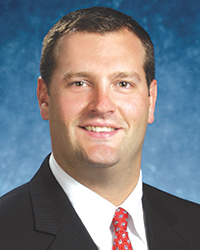Elcock, Goodhue, Hudak and Hines of Colliers handle 9,352 s/f lease to Wipro Limited
Quincy, MA The Colliers Boston team of Jim Elcock, David Goodhue, Caleb Hudak and Dan Hines worked in collaboration with Jumbo Capital Management’s Jordan Berns and Jay Hirsh to reach an agreement that leased 9,352 s/f at 1900 Crown Colony to Wipro Limited, a technology consulting company head quartered in Bengaluru, India with a presence in 67 countries worldwide.
“We are very excited to welcome Wipro to the building. As a publically traded, globally recognized company, we feel the quality of their tenancy coupled with the long term commitment they made to the building is a natural fit with the existing roster of impressive tenants at the property,” said Berns.
Jumbo Capital Management acquired the property at 1900 Crown Colony in August 2014 when it was 60% leased. The property is now 90% leased with the remaining vacancy at the property being on the third floor.
Jumbo Capital Management is a privately-held, value-focused, commercial real estate investment firm serving institutions, high net-worth individuals, family offices, private trusts, and 1031 investors. Founded in December 2009, to date, Jumbo Capital has 17 properties under management totaling more than 2 million square feet, and is led by principles with more than 50 years of combined industry experience.
Wipro Limited is a publically traded global information technology, consulting and outsourcing company with over 160,000 employees and a market cap of over $30.4 billion. It is a partner and co-innovator to businesses as they look to transform their companies with technology.
Atlantic Property Management expands facilities maintenance platform: Assigned two new facility management contracts in RI


Tenant Estoppel certificates: Navigating risks, responses and leverage - by Laura Kaplan

Unlocking value for commercial real estate: Solar solutions for a changing market - by Claire Broido Johnson

New Quonset pier supports small businesses and economic growth - by Steven J. King


 (1).png)












 (1).png)
